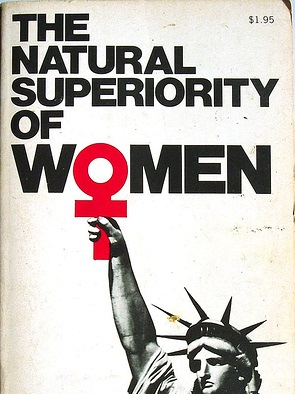Editor’s note: The following post appeared on the ‘Alas‘ blog in 2009 and is repeated here as a qualifier of the difference between gynocentric and egalitarian feminism. The definition is a good first attempt to capture the essence of something which is pervasive within feminism. It is hypothetically possible to eschew all of the gynocentric criteria, while still being a feminist recognised by other feminists, though their number, if they exist, must be very small indeed.
Feminism: gynocentric or egalitarian?
By Ballgame (2009)
Thanks for giving me the opportunity to clear up what I’m guessing is probably a common misconception about the terms, “gynocentric feminist” and “egalitarian feminist.” The terms are not intended as descriptions of the particular feminist’s focus of discussion or activism. A woman could be focused entirely on preserving women’s right to access abortion … and be an egalitarian feminist. A man could be focused on male bonding a la Robert Bly and yet still be a gynocentric feminist.
The terms actually get at the principles of the feminist in question. If a feminist believes that men are universally privileged by gender and women are not, or that women have inherently superior insights into questions of gender than men, or that women are entitled to define the terms of gender discussions and that men must ‘check their privilege’ before entering into those discussions (and women don’t have to check theirs), or believes that men oppressing other men is an example of men ‘oppressing themselves’ (or other similar ‘men are Borg’ type notions), or has a habit of vilifying reasonable and respectful critics of feminist misandry, then that person is a gynocentric feminist.
If, on the other hand, a feminist believes that both men and women are oppressed by gender, and believes that everyone struggling against gender oppression deserves respect (regardless of which gender’s oppression they’re working against), then that person would more likely be an egalitarian feminist. (I say “more likely” because I’m tired and I suspect my ‘egalitarian’ definition here is probably pretty incomplete.)
